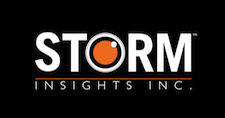To view just the slides from this presentation, click HERE>>
About the Webinar
Leading edge AI applications have always been resource-intensive and known for stretching the limits of conventional (von Neumann architecture) computer performance. Specialized hardware, purpose built to optimize AI applications, is not new. In fact, it should be no surprise that the very first .com internet domain was registered to Symbolics – a company that built the Lisp Machine, a dedicated AI workstation – in 1985. In the last three decades, of course, the performance of conventional computers has improved dramatically with advances in chip density (Moore’s Law) leading to faster processor speeds, memory speeds, and massively parallel architectures. And yet, some applications – like machine vision for real time video analysis and deep machine learning – always need more power.
Participants in this webinar will learn the fundamentals of the three hardware approaches that are receiving significant investments and demonstrating significant promise for AI applications.
- neuromorphic/neurosynaptic architectures (brain-inspired hardware)
- GPUs (graphics processing units, optimized for AI algorithms), and
- quantum computers (based on principles and properties of quantum-mechanics rather than binary logic).
Note – This webinar requires no previous knowledge of hardware or computer architectures.
About the Speaker
Adrian Bowles
Founder, STORM Insights, Inc.
 Adrian is an industry analyst and recovering academic, providing research and advisory services for buyers, sellers, and investors in emerging technology markets. His coverage areas include cognitive computing, big data / analytics, the Internet of things, and cloud computing. Adrian co-authored Cognitive Computing and Big Data Analytics (Wiley, 2015) and is currently writing a book on the business and societal impact of these emerging technologies. He has held executive positions at several consulting and analyst firms. Adrian also held academic appointments in computer science at Drexel University and SUNY-Bingamton, and adjunct faculty positions in the business schools at NYU and Boston College. He began his career with research and application development roles at IBM and GTE Laboratories. Adrian earned his BA in Psychology and MS in Computer Science from SUNY-Binghamton, and his Ph.D. in Computer Science from Northwestern University.
Adrian is an industry analyst and recovering academic, providing research and advisory services for buyers, sellers, and investors in emerging technology markets. His coverage areas include cognitive computing, big data / analytics, the Internet of things, and cloud computing. Adrian co-authored Cognitive Computing and Big Data Analytics (Wiley, 2015) and is currently writing a book on the business and societal impact of these emerging technologies. He has held executive positions at several consulting and analyst firms. Adrian also held academic appointments in computer science at Drexel University and SUNY-Bingamton, and adjunct faculty positions in the business schools at NYU and Boston College. He began his career with research and application development roles at IBM and GTE Laboratories. Adrian earned his BA in Psychology and MS in Computer Science from SUNY-Binghamton, and his Ph.D. in Computer Science from Northwestern University.

